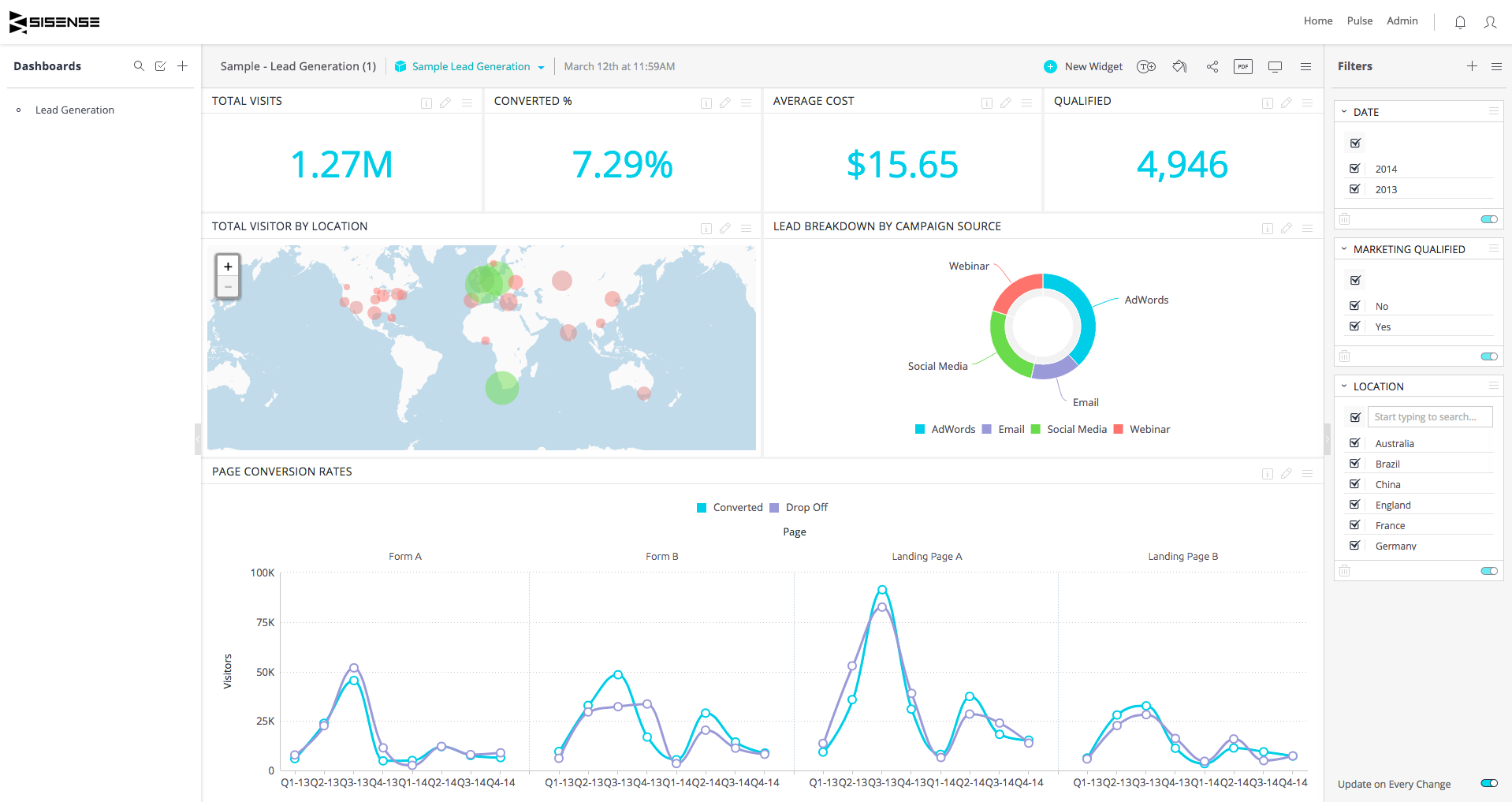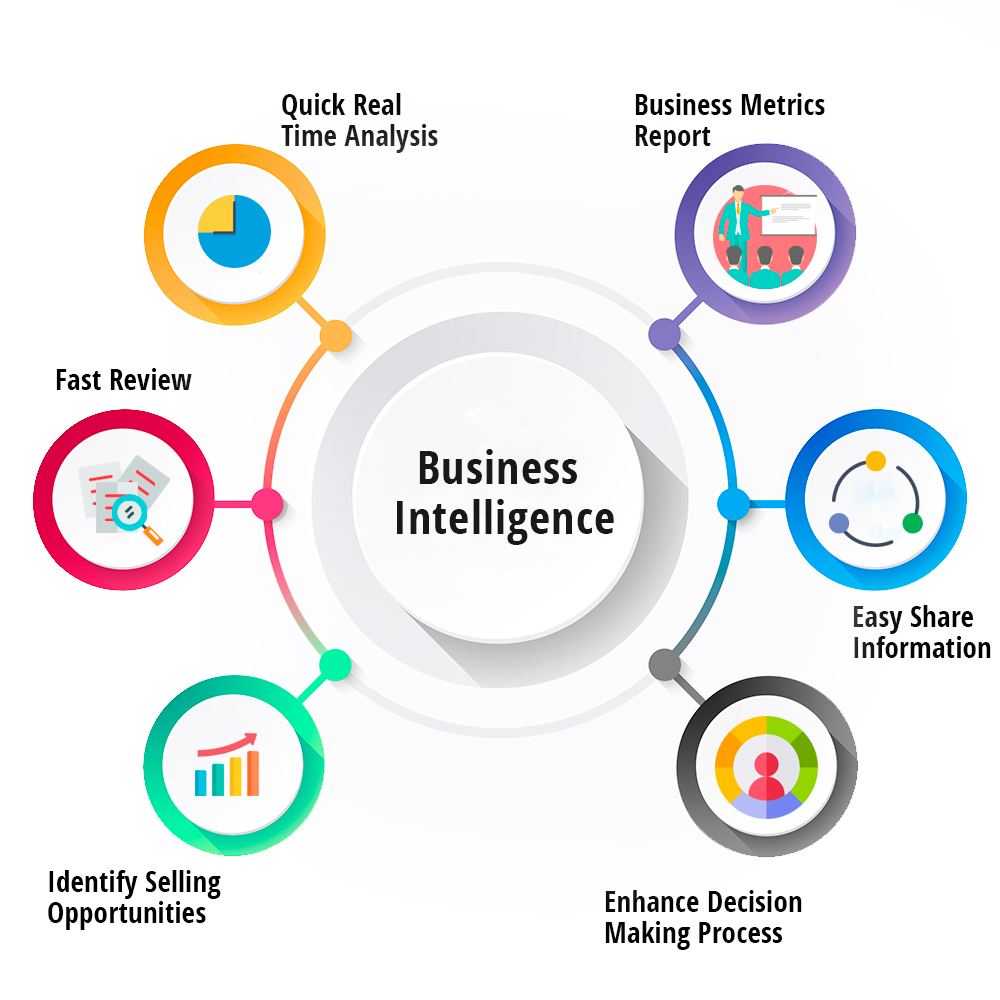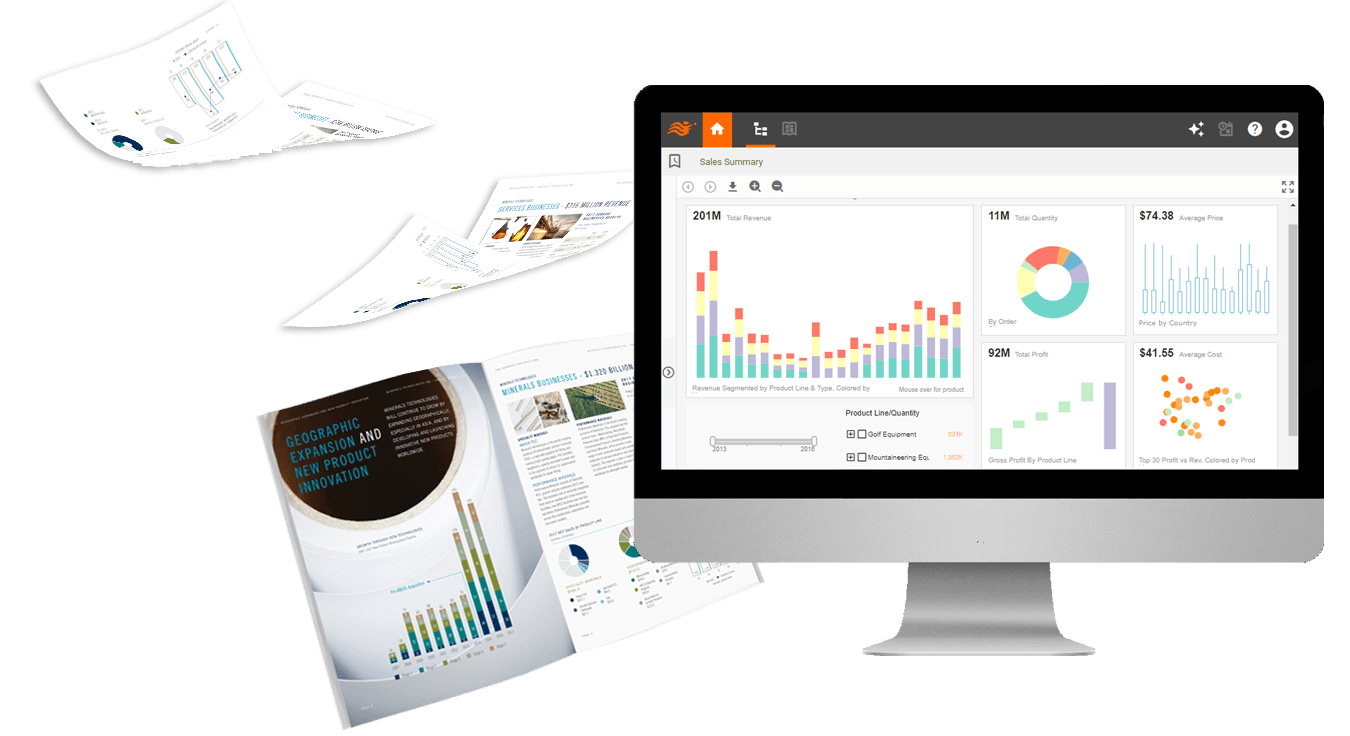The modern business landscape is increasingly complex, demanding organizations move beyond simple reporting to truly understand their operations, customers, and market trends. This shift necessitates a robust approach to data analysis – that’s where business intelligence (BI) services come in. At [Your Company Name – Replace with actual company name], we specialize in delivering tailored BI solutions that empower businesses to make informed decisions, optimize performance, and gain a competitive edge. We understand that every organization is unique, and our approach is centered around understanding your specific needs and challenges. This article will explore the core benefits of business intelligence services, the different types available, and how we can help you unlock the full potential of your data. Let’s delve into how we can transform your data into actionable insights.

Understanding the Need for Business Intelligence

For too long, businesses have relied on outdated reporting methods, often struggling to extract meaningful information from vast datasets. Traditional reporting systems frequently fail to provide a holistic view of the business, hindering strategic planning and operational efficiency. The rise of digital transformation has amplified this challenge, with businesses generating an unprecedented amount of data from diverse sources – customer interactions, sales transactions, marketing campaigns, supply chain logistics, and more. Without the right tools and expertise, this data remains trapped in spreadsheets, reports, and disconnected systems, limiting the ability to identify patterns, predict trends, and proactively address challenges. The need for a strategic approach to data management is no longer optional; it’s a necessity for sustained success. Business intelligence services are precisely what’s needed to bridge this gap and transform raw data into valuable insights.

Different Types of Business Intelligence Services
There’s a wide spectrum of business intelligence services available, each designed to address specific business challenges. We offer a comprehensive suite of solutions, ranging from basic reporting to advanced analytics and predictive modeling. Here’s a breakdown of some key types:

- Data Warehousing: This foundational service involves collecting, cleaning, and storing data from various sources into a centralized repository – a data warehouse. It provides a single source of truth for business intelligence, enabling consistent and reliable analysis. We build and maintain robust data warehouses using technologies like Snowflake, Amazon Redshift, and Google BigQuery.
- Data Visualization: Transforming data into easily understandable charts, graphs, and dashboards is crucial for communicating insights effectively. Our data visualization specialists create compelling visual representations of data, highlighting key trends and patterns. We utilize tools like Tableau, Power BI, and Qlik Sense to deliver interactive and insightful visualizations.
- Reporting: Automated reporting is a cornerstone of BI, providing regular updates on key performance indicators (KPIs). We develop customized reports tailored to specific business needs, ensuring timely and relevant information. These reports can be delivered via email, web portals, or other channels.
- Data Mining: This advanced technique involves uncovering hidden patterns and relationships within large datasets. We utilize techniques like clustering, association rule mining, and regression analysis to identify valuable insights that might not be immediately apparent.
- Predictive Analytics: Moving beyond historical analysis, predictive analytics uses statistical modeling and machine learning to forecast future outcomes. This allows businesses to anticipate trends, optimize resource allocation, and make proactive decisions. We leverage algorithms like time series analysis and neural networks.
- Business Process Mining: Analyzing how actual business processes compare to the documented processes can reveal inefficiencies and areas for improvement. This service helps identify bottlenecks and optimize workflows.
The Importance of Choosing the Right BI Provider
Selecting the right BI provider is a critical decision. Not all providers are created equal. Factors to consider include:

- Expertise: Does the provider have the specific industry knowledge and experience you need?
- Technology: Does the provider utilize the right technologies for your data and analytical needs?
- Scalability: Can the provider scale to meet your growing data volumes and analytical demands?
- Cost: What is the total cost of ownership, including implementation, maintenance, and support?
- Integration: How well does the provider integrate with your existing systems and data sources?
Benefits of Implementing Business Intelligence
Investing in business intelligence services yields significant returns. Here are some key benefits:

- Improved Decision-Making: Data-driven insights empower leaders to make more informed and strategic decisions.
- Increased Operational Efficiency: Identifying bottlenecks and optimizing processes leads to significant cost savings.
- Enhanced Customer Understanding: Analyzing customer data allows businesses to personalize their offerings and improve customer satisfaction.
- Competitive Advantage: Early identification of market trends and opportunities gives businesses a significant edge.
- Increased Revenue: Optimized marketing campaigns and improved sales forecasting drive revenue growth.
Case Study: Retail Chain Optimization
[Your Company Name] recently partnered with a large retail chain to implement a business intelligence solution. The client’s primary challenge was declining sales in the seasonal holiday season. By leveraging our data warehousing and predictive analytics capabilities, we identified a significant drop-off in sales during the weeks leading up to Christmas. We then developed a targeted marketing campaign based on customer purchase history and browsing behavior, resulting in a 15% increase in holiday sales. This case study demonstrates the power of business intelligence to drive tangible results.

The Role of Data Governance in Successful BI
Effective business intelligence relies on robust data governance – policies and procedures that ensure data quality, consistency, and security. Poor data governance can lead to inaccurate insights, flawed decisions, and ultimately, wasted investment. [Your Company Name] offers comprehensive data governance services, including data quality audits, data lineage tracking, and data security protocols. We work closely with clients to establish and maintain a strong data governance framework.

Future Trends in Business Intelligence
The field of business intelligence is constantly evolving. Several key trends are shaping the future of this field:

- Cloud-Based BI: The shift towards cloud-based BI solutions is accelerating, offering greater scalability, flexibility, and cost-effectiveness.
- Artificial Intelligence (AI) and Machine Learning (ML): AI and ML are being increasingly integrated into BI tools, enabling more sophisticated analytics and predictive modeling.
- Real-Time Analytics: The ability to analyze data in real-time is becoming increasingly important for businesses that need to respond quickly to changing conditions.
- Embedded Analytics: Integrating BI capabilities directly into business applications – such as CRM and ERP systems – is becoming more common.
Conclusion
Business intelligence services are no longer a luxury; they are a fundamental requirement for businesses seeking to thrive in today’s competitive landscape. By leveraging the right tools, expertise, and strategies, you can unlock the full potential of your data and achieve significant business outcomes. At [Your Company Name], we are committed to partnering with you to transform your data into actionable insights. We believe that a well-executed BI strategy can drive innovation, improve efficiency, and ultimately, contribute to your organization’s long-term success. Contact us today to learn more about how we can help you achieve your business intelligence goals. Business intelligence services are designed to be a strategic investment, yielding substantial returns. Don’t let your data remain untapped – embrace the power of insights.
